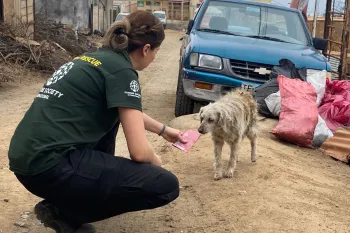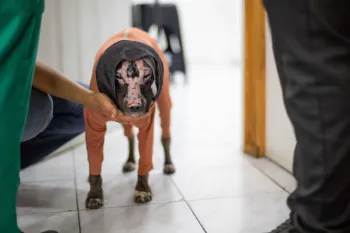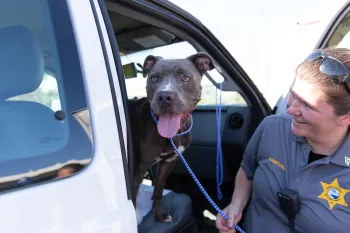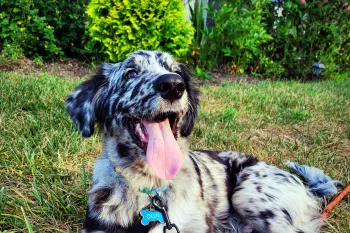Our disaster relief team does not shy away from challenging conditions when it comes to helping animals and their families. In 2020, they responded to animals’ needs following the devastation wrought by Australia's wildfires, and last year they went to save animals after the earthquakes in Türkiye. The team’s experience, training and preparation make such a difference. Now our disaster relief team has deployed to Chile to help save hundreds of animals in the wake of devastating and fatal fires. Thousands of people and potentially hundreds of companion animals have been affected, suffering with burns, smoke inhalation and other injuries, with many dogs and cats displaced with or without their families. In this guest blog, Felipe Marquez, our program manager for Latin America region disaster response, shares a glimpse of the team’s work in the field.
As in any disaster response, our teams on the ground see and hear unbelievable stories of survival and resilience, and the response to Chile's wildfires and urban fires is no different.
Since our first day here, our responders have been working with the affected communities and their animals. Hundreds of dogs, cats, cows, horses and other animals were burnt, displaced or affected in some way by one of the most destructive and powerful fires that Chile has ever had.
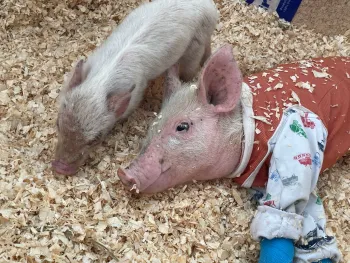
Diana Rodriguez/HSI
At the request of the Municipality of Viña del Mar, our first cohort of responders traveled to Chile from Costa Rica, Colombia, Mexico and the United States. Since their arrival, they’ve been working at the field clinic with dogs and cats and supporting the efforts of volunteers and local veterinarians who are also involved in the response.
The team has also been distributing food and helping animals that can´t been taken to the clinics by their owners.
There is a critical human dimension to disaster response, one that rests on the most personal of connections with individuals whose lives have been upended. Our team members hear many stories as they move through these communities, offering a listening ear to people trying to explain what they lived through during the fires and children speaking about their lost toys. The team has seen families rejoice when they reunite with their animals and loved ones, regardless of whether they have lost all their belongings.
In other words, responding to a disaster is not only about search and rescue or distributing food; it is about deeper engagement with the animals and their families, understanding how vulnerable we all are and how important is to keep working in preparedness and risk reduction; it is about letting people talk and acting as a listener; it is about trying to be helpful and working with their animals, so people can have one less thing to worry about while trying to re-build and bring their lives to normal.
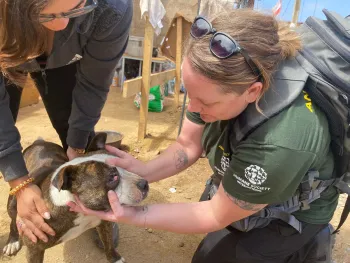
Felipe Marquez/HSI
On the past week, together with the Municipality of Viña del Mar, our team has been able to help at the temporary clinic at the Libertador Bernardo O´Higgins primary school, where around 300 animals have been receiving medical assistance, including some referrals to private clinics and foster families who have offered themselves to help affected animals in their recovery.
In some cases, our team has offered support for families needing closure. When a dog was hit by a car because the fence that protected her house was burned during the fires, the family reached out to our team. We rushed the dog to the hospital; our own vets did surgery which she survived and kept her owner with her the whole time. Sadly, she passed away at the hospital overnight, and we had the solemn honor to have been able to bring her home to her family for burial.
At times, the scale of the disaster can feel overwhelming, but acts of kindness have incredible power. We’ve watched the expressions of people’s faces change as they see their animals receive food and care.
There is still a lot to do and a second wave of responders from Guatemala, El Salvador, Mexico and the U.S. is now in position to continue helping the victims of the fires. You can help support our efforts.
Felipe Marquez is program manager, Latin America region disaster response.
